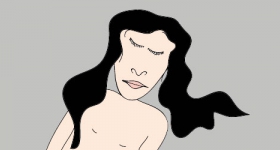Last July, Luis Ramirez, a Latino immigrant who worked in a factory, was brutally killed by a gang of drunken white teenagers motivated by their dislike of the growing Latino population in their small coal mining town of Shenandoah, Penn. Two of the young white men who killed Luis were recently acquitted by an all white jury of all serious charges including third-degree murder and ethnic intimidation.
The facts of this case sounded all too familiar to those of us lawyers who work on civil rights cases. They mirror the facts at the heart of the 1982 Vincent Chin hate crime case.
The above comes from an article by a lawyer at Asian Pacific American Legal Center (APALC) of Los Angeles. Do read it where it lives, and come back.
I've been thinking (and talking, and writing) about hate crimes quite a bit lately. Attended a conversation at the UCSB residence halls last night, where students were working through their views of the recent racially-motivated assault on campus. The conversation also came on the heels of a screening of the excellent new documentary on Vincent Chin, the night before.
The students opened by piecing together a definition of a hate crime. What kinds of acts fall under this legal category? Identity-based violence takes many forms, they recognized. Not all of it physical, not all of it criminally prosecutable.
In the eyes and on the books of civil rights law, I'm told, the racial, sexual, or say religious basis of a crime becomes an "enhancement" to the basic criminal charges, of assault and battery, say, or first-degree murder. And that's how/why we want them prosecuted: because the crime was "enhanced," i.e., made worse, by its hateful nature.
But I'm realizing there's an irony in this. In cases like Luis Ramirez and Vincent Chin, the judicial process has seen fit to treat the racial nature of the attacks not as enhancements, but as diminishments -- mitigants so powerful as to turn a murder into a beating, or a crime into nothing at all.










Comments